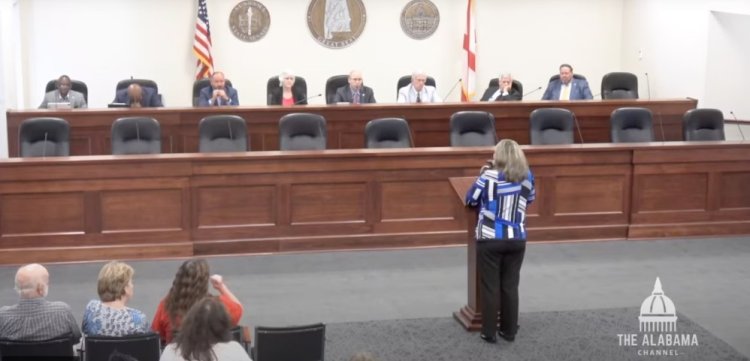Alabama Lawmakers Distance Themselves from Parole Board, Leaving Families Feeling Helpless
During a legislative meeting in Montgomery on Wednesday, Alabama's parole board faced criticism from lawmakers and families alike. Representative Jim Hill, a former judge and Republican from St. Clair County, emphasized that the legislature is not responsible for the parole board's frequent denials.

During a legislative meeting in Montgomery on Wednesday, Alabama's parole board faced criticism from lawmakers and families alike. Representative Jim Hill, a former judge and Republican from St. Clair County, emphasized that the legislature is not responsible for the parole board's frequent denials.
"Pardons and paroles ought to be here to hear what you have to say," Hill told family members of Alabama prison inmates who shared harrowing accounts of conditions inside state lockups.
For 90 minutes, families flooded the Joint Prison Oversight Committee meeting, recounting stories of rape, death, assault, and extortion their loved ones have endured. Some of the harshest criticism was directed at the state parole board.
Karen Gann, whose son is an Army veteran serving 25 years in prison with no prior criminal record, expressed frustration. "I read this in the paper," Gann said. "People come up for parole and they’re denied."
Senator Clyde Chambliss, R-Autauga County, nodded in agreement.
Gann continued, "I’ve tried everything I can… you can’t get anywhere because they throw the key away once they put you in there. You’re stuck for life."
Michelle McCloud shared her brother's story, who has been incarcerated for murder since he was a teenager. Despite being on work release and deemed safe enough to work in the community, he has been denied parole five times. "If he is good enough to work in society earning $2 per day, but can’t be trusted to come home... we don’t understand why," McCloud said.
Attorney Lauren Faraino, who represents parole candidates, criticized the absence of public officials, including parole board members. "The parole board needs to be here," Faraino stated. "They are a part of the problem."
Chambliss acknowledged the oversight, explaining he invited the board 30 days ago and would give more advance notice for future hearings.
Faraino singled out parole board chairperson Leigh Gwathney for frequently voting to deny parole and postponing hearings, often sending inmates back to prison for another five years—the maximum time allowed by state law.
Committee members concluded the meeting with remarks about the parole board's role in the prison crisis and their lack of accountability. Hill clarified the separation of powers, stating, "The legislative branch of government... does not direct the day-to-day operations of the Department of Corrections or the Board of Pardons and Paroles."
Rep. Chris England, D-Tuscaloosa, noted that public pressure from the media and families has brought about some changes. "This sort of accountability has changed things," he said. "The conversations happening publicly today about the prison system and parole board used to occur behind closed doors."







